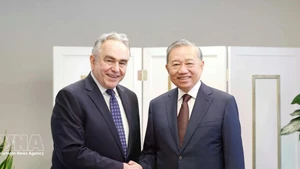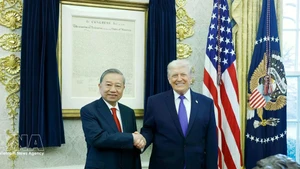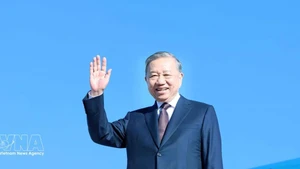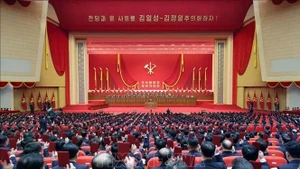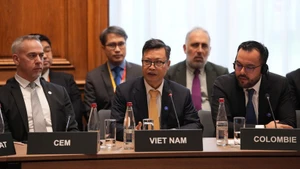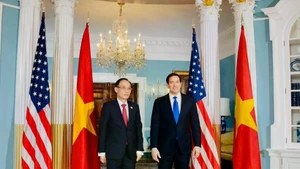Released as part of Russian President Vladimir Putin's state visit to Vietnam on June 19 and 20, the joint statement wrote that the two countries will continuously strengthen their comprehensive strategic partnership based on friendship and mutual support amidst a complex international landscape. In 2025, they will celebrate 75 years of diplomatic relations, marking a long journey of overcoming challenges together.
According to the document, both sides affirmed that consolidating and enhancing the effectiveness of the comprehensive strategic partnership is a top foreign policy priority for both, serving long-term interests, contributing to each country's development, and enhancing their roles regionally and globally.
Vietnam and Russia build their relationship on mutual trust, principles of sovereign equality, territorial integrity, the right to self-determination, non-interference in each other's internal affairs, no use or threat to use force, peaceful settlement of disputes, and in accordance with the UN Charter and international law. They are determined to continue close cooperation in both bilateral and multilateral frameworks.
Vietnam and Russia do not align or enter into agreements with a third party to take actions that are harmful to each other's independence, sovereignty, territorial integrity, and fundamental interests. The development of their bilateral relations is not aimed against any third party.
Vietnam and Russia also agreed to continue regular and substantive high-level political dialogue, striving to effectively implement agreements reached between their leaders. They aim to enhance the efficiency of existing cooperation mechanisms, establish new ones, and strengthen contacts through party and parliamentary channels.
Both sides emphasised the special role of defence and security cooperation in their overall relationship and agreed to strengthen comprehensive collaboration in international information security in line with international law and bilateral agreements.
The two sides recognised the need to enhance joint work in emergency response, further develop economic cooperation, and support the early agreement and implementation of the master plan for Vietnam-Russia cooperation development until 2030.
They affirmed the importance of increasing Vietnamese investment in Russia and Russian investment in Vietnam in such areas as mineral extraction and processing, industry, agriculture, machinery manufacturing, and energy.
Both sides concurred to continue cooperating in existing and new oil and gas projects in accordance with each country's law, meeting the strategic interests of both parties. They also saw potential in cooperation on the construction and modernisation of power facilities.
They supported facilitating the operation expansion of Vietnamese oil and gas enterprises in Russia as well as of Russian oil and gas enterprises on the Vietnamese continental shelf, in line with Vietnamese, Russian and international laws, including the 1982 United Nations Convention on the Law of the Sea.
The joint statement also highlighted the potential for nuclear energy collaboration, the strategic nature of joint work in education, training, science, technology, and innovation, and the promotion of the study and teaching of Vietnamese in Russia and Russian in Vietnam.
The areas for expanded cooperation also included humanities, media, health, sports, and tourism. Both sides agreed to continue discussions on immigration issues and facilitate the living, working, and studying conditions for Vietnamese citizens in Russia and Russian citizens in Vietnam.
Both sides vowed to accelerate the objective process of establishing a fair and sustainable multipolar world order, in line with the fundamental principles of the United Nations Charter and international law, including respecting sovereignty, territorial integrity, the right to self-determination of peoples, non-interference in the internal affairs of countries, and refraining from the threat or use of force, and peaceful settlement of disputes.
They emphasised that effective cooperation and coordinated actions at global and regional forums will strengthen and enhance the bilateral relationship, deepening the traditional friendship and comprehensive strategic partnership between the two countries. This will serve the long-term interests of their people, contributing to peace, security, and sustainable development in the Asia-Pacific and the world.
President Putin invited Party General Secretary Nguyen Phu Trong and other high-ranking Vietnamese leaders to visit Russia at a convenient time. The Vietnamese side accepted the invitation with pleasure.
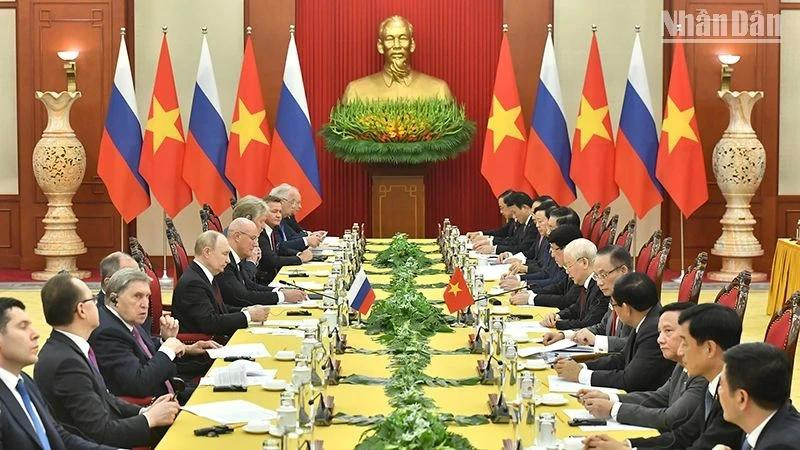
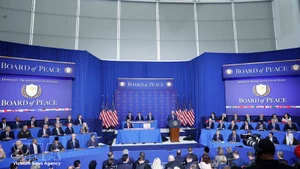
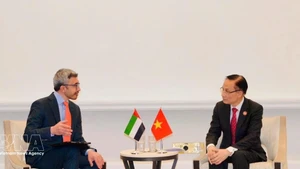
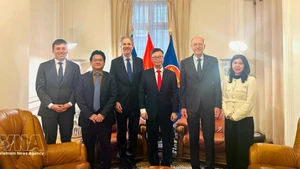
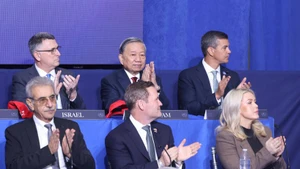
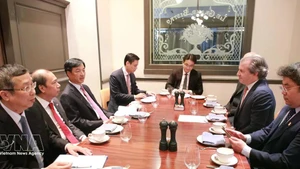
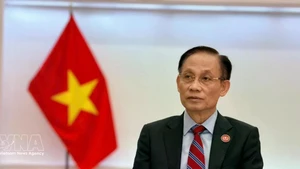
![[In pictures] Party General Secretary To Lam meets US President Donald Trump](https://en-cdn.nhandan.vn/images/dcd63867a0eed4c7753eb4bfb346593abc1ce710dfab8ad1b9aebd75ea6bf930b2ea13e4664779d689ba40aadd80f76d5d05d1208720fd7b0d811ace3a3297321c78cf738400e136e3f2d8790b24d43646e46edbe19517144a88f6ffb0d528f153574a7109328cc0949e4a4c16433c2ff751541639eefe4490518227264cbf8e/vna-potal-tong-bi-thu-to-lam-gap-tong-thong-hoa-ky-donald-trump-8599945.jpg.webp)
